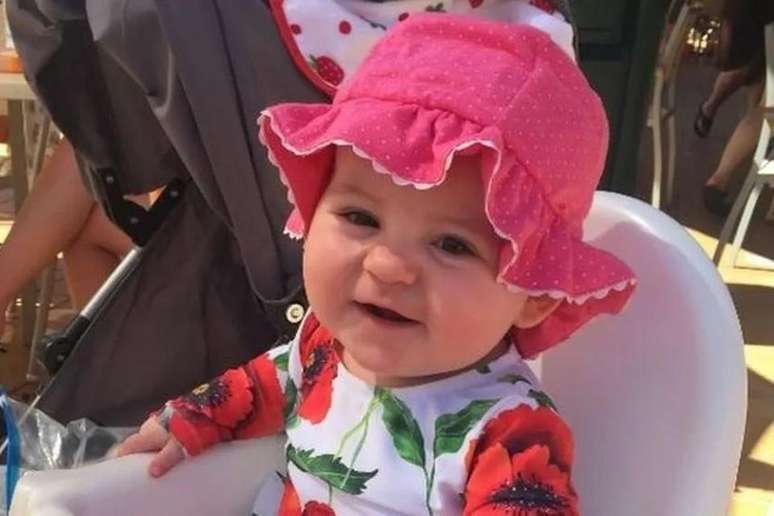Professionals diagnosed the child with a urinary tract infection, but the girl died of sepsis
Evie Crandle, 1 year 3 months old, was taken by her parents, Sam and Phil, to the emergency room after becoming lethargic and blue-lipped. The doctor who attended the girl said she probably had a urinary tract infection that could be treated with medication and sent the family home with a prescription for painkillers and antipyretics. The child died and the case shocked the family’s community in England.
The little girl had a heart rate over 200, the normal range for her age being between 140 and 160 beats per minute, as well as a fever of 39.9°C. Therefore, her parents were sure that their daughter was not well.
Staff at St Helen’s Meseyside Hospital said Evie had a urinary tract infection but the child quickly got worse and died of sepsis, which is when the infection enters the bloodstream and spreads through the body. The girl’s death occurred on April 16, 2018, and an investigation found that professionals missed the opportunity to make the correct diagnosis and detect sepsis.
Now, Sam and Phil are alerting the public to raise awareness of the vital signs of children with severe infections, who need to be quickly identified and treated.
“To feel empowered to challenge decisions, you need to know that you know your child best, so you need to have the tools to ask doctors to explore whether they might be sepsis and ask them to explain why it’s not sepsis, as well as push for tests.” ”, the mother told the newspaper Echo of Liverpool.

Sam said her daughter wasn’t getting enough intensive care, even though she was showing signs. “We took her home and took her for a urine test. Then we took her to the hospital, but she was getting worse and faster before we knew it was an emergency. It was very clear she had the sepsis”.
Today, the couple have two daughters, Lily and Nia, with whom they often talk about Evie. Nia, now 3, was also diagnosed with possible sepsis but she recovered within 48 hours after being given antibiotics. “It’s clear that some symptoms are similar to those of other diseases, but there’s a culture of not wanting to give antibiotics. However, when it comes to sepsis, early intervention is key,” Sam points out.
“The professionals at the hospital have been great with Nia, but if Evie had taken the antibiotics on the first hospital visit, she would have been fine 48 hours later like Nia did and it’s really hard to live with that idea.” It was very clear to us that Evie was in very bad shape, but it wasn’t clear to the doctors and I don’t understand how that’s possible,” she said.
Investigation
Only in 2019 did a report conclude that Evie died of natural causes due to negligence. The hospital has entered into an agreement with the appointed medical examiner to implement an action plan to prevent future deaths from the same cause.
At the time, a hospital spokesman said: “The institution offers its sincere condolences to Evie’s family on their devastating loss and unreservedly apologizes for the shortcomings in their care. When Evie first went to the emergency room, we didn’t expect her condition to deteriorate so seriously. Sepsis is a rare and difficult condition to diagnose because it has similar symptoms to many childhood illnesses. After Evie’s death, an immediate and thorough investigation was conducted. The hospital agreed that Evie’s care could have been better and shared the findings with Evie’s parents. Action plans were put in place to ensure lessons were learned.”
sepsis
Sepsis is a blood infection which, according to the British public health system, the NHS, can be fatal and difficult to detect. There are many possible symptoms, which can often be confused with the flu or a chest infection.
Source: Terra
Rose James is a Gossipify movie and series reviewer known for her in-depth analysis and unique perspective on the latest releases. With a background in film studies, she provides engaging and informative reviews, and keeps readers up to date with industry trends and emerging talents.



![New Day: Tarek and Tera Suspected Louise … Who Waiting You, on August 29, 2025 in the 45th Episode of Friday [SPOILERS] New Day: Tarek and Tera Suspected Louise … Who Waiting You, on August 29, 2025 in the 45th Episode of Friday [SPOILERS]](https://fr.web.img5.acsta.net/img/5a/82/5a8221afb0a9028b9c8d4ae3d631d41b.jpg)



